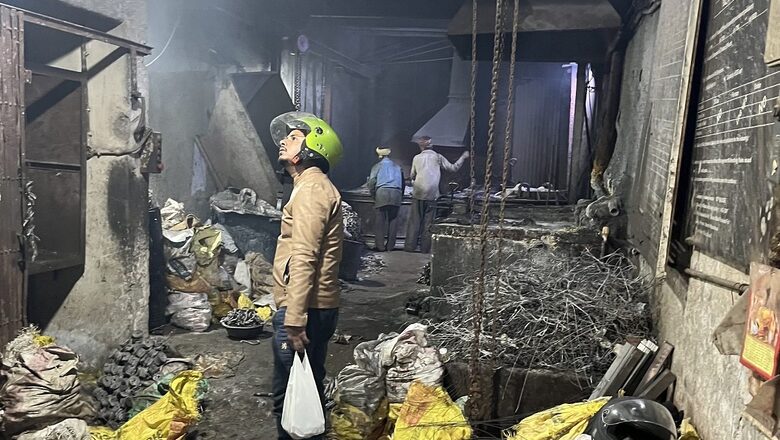
views
The micro, small and medium enterprises (MSME) sector has become an integral part of the Indian economy in the past few decades, contributing more than 29 per cent to the country’s GDP. MSMEs have not only played a crucial role in providing large employment opportunities at comparatively lower capital costs, but also helped in the industrialisation of rural and backward areas, thereby reducing regional imbalances and assuring more equitable distribution of income and wealth.
The government recognises the importance of the MSME sector in the growth of the Indian economy, and the recent budgets have introduced various policies, incentives and support schemes to boost the sector’s growth, including access to credit, subsidies, and ease of doing business.
MSMEs have their own wishlist that, inter-alia, focuses on the following:
a) Investment incentives to encourage digitisation of the sector, provide impetus to manufacturing, etc.
Even as the whole world is undergoing a massive digital transformation, a significant chunk of the MSME population of India resides in tier 2, 3 and 4 cities and lack digital awareness. Thus, digitization initiatives still need hand holding.
SaaS-enabled logistics will help SMEs grow while reducing their IT costs, infrastructure overheads and the costs associated with operations and warehouse management. Thus, to encourage digitization of MSMEs, a welcome move for this Budget would be to offer one-time special tax incentives/ allowances for investments in technology-related services for MSMEs (over and above the actual cost) which would have a domino effect with more businesses being encourages to make the digital transformation.
Further, considering that the manufacturing sector is a significant contributor towards generating employment and accelerating economic growth, amplifying its growth has long been on the agenda of the government. Accordingly, to encourage investment in plant and machinery by manufacturing enterprises, the Budget could consider to provide special incentives in the form of investment allowance on purchase of new plant and machinery (over and above the actual cost) [similar to erstwhile provisions introduced vide Finance Act, 2013]. This will boost the rural economy, develop industrial clusters in each district, spur the bank credit which will aid the vision of ‘Aatmanirbhar Bharat’.
b) The MSME sector operates on slim margins and long working capital cycles. To ease their financial burden, the government could consider introducing lower rate of withholding taxes for MSME sector. This will help meet their liquidity requirement to a certain extent. The introduction of the above reform will result in lower collection of taxes for the government. However, it will be re-couped, to a certain extent, by the payment of advance taxes which need to be complied with on a quarterly basis.
c) To simplify the scheme of taxation for small businesses, the provision of presumptive taxation was introduced under the tax law. Under this, a taxpayer is neither required to maintain full-fledged books of account nor is it required to get those books of accounts audited. As per the present regulation, any taxpayer whose turnover does not exceed Rs 2 crore is covered by the above regulation (subject to satisfaction of certain conditions, the above threshold limit is increased to Rs 3 crore).
As per the extant MSME regulation, a micro enterprise has been defined to mean an enterprise with a turnover of Rs 5 crore and its total investment in plant and machinery or equipment does not exceed Rs 1 crore. Given the above, the government could consider increasing the turnover threshold limit under presumptive taxation.
d) Recently, it has been witnessed that many SMEs are raising funds via Initial Public Offering (IPO). To boost the listing of the shares of SME enterprises on the SME platform, the government could consider providing a separate rate of capital gains tax on sale of shares of such enterprises. This will encourage investor participation in SME IPO.
e) Further, a suitable amendment to the CGST Act to exempt GST TCS obligations on e-commerce operators on facilitation of zero-rated supplies, could be considered, to mitigate the cash flow issue of exporters and facilitate ease of compliances.
f) While the government has been assisting MSMEs by providing guarantees and thereby facilitating collateral-free loans, the government could also consider providing relaxations to NBFCs and FinTech’s under the applicable laws / incentives, while granting loans to MSMEs, to increase their portfolio in this sector. This will lead to easier access to credit and lower interest rates to facilitate business expansion.
g) This Budget should also provide measures to promote exports from MSMEs including providing incentives, subsidies, and support for participation in international trade exhibitions.
The MSME sector, being the backbone of the Indian economy, anticipates the Union Budget 2024-25 to extend its value proposition and increase outreach, thus contributing to financial inclusion. Foremost expectations viz. enhanced access to finance, tax reforms, special incentives, etc. would foster growth and sustainability of the MSME sector which would play a pivotal role in achieving India’s dream to become a $5-trillion economy.
(The author is partner at Deloitte India. Views expressed are personal.)
















Comments
0 comment